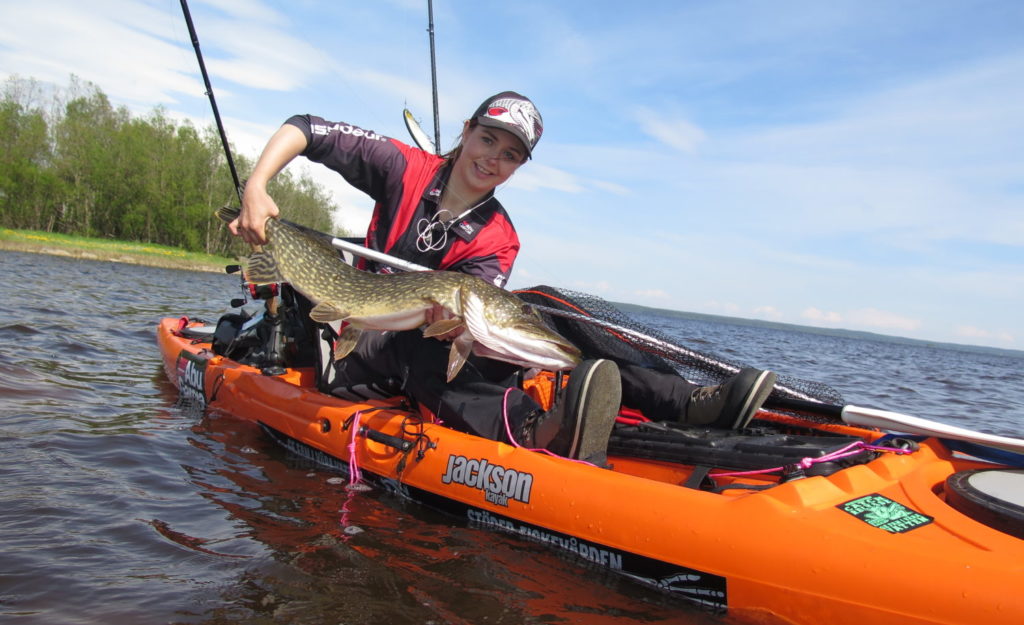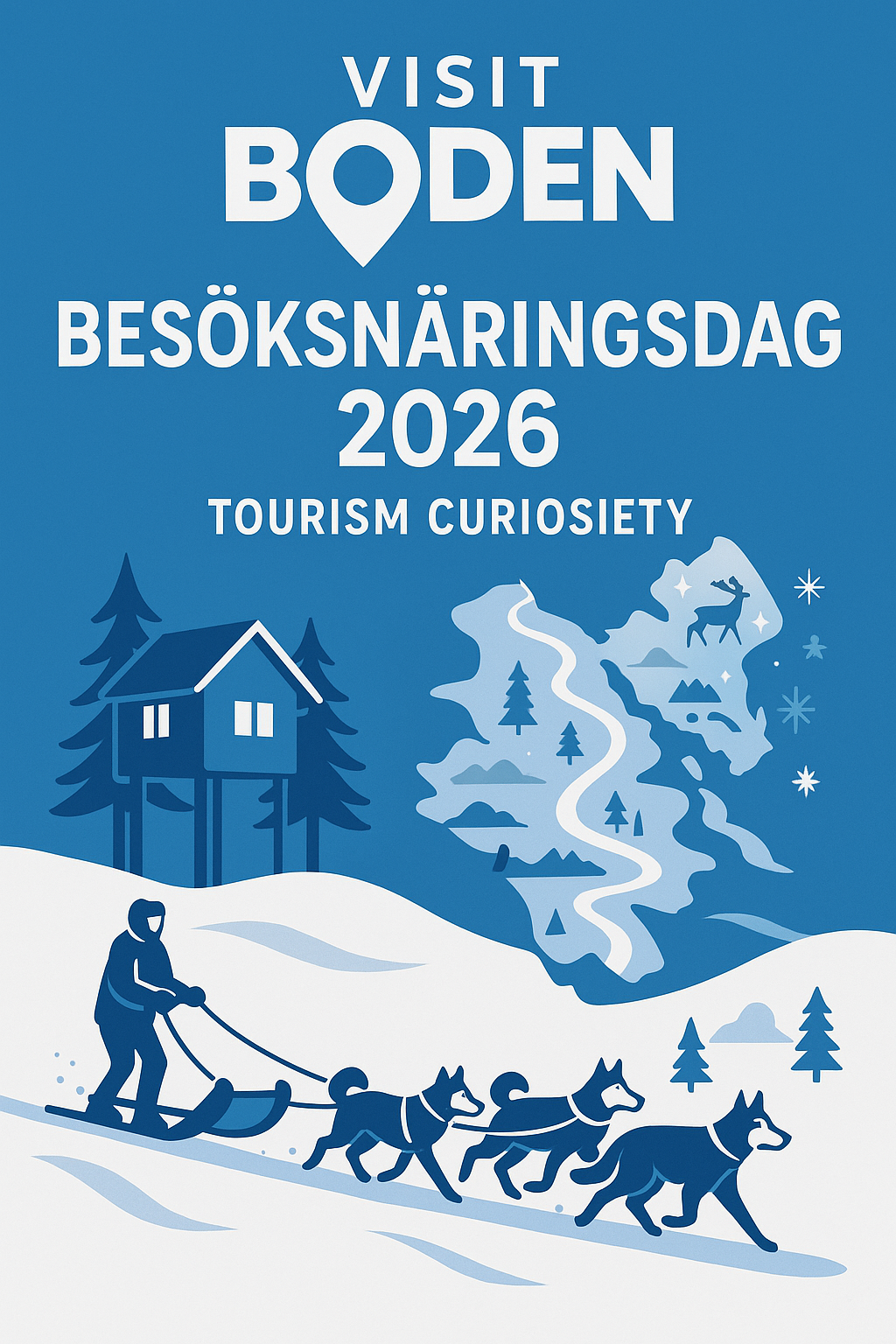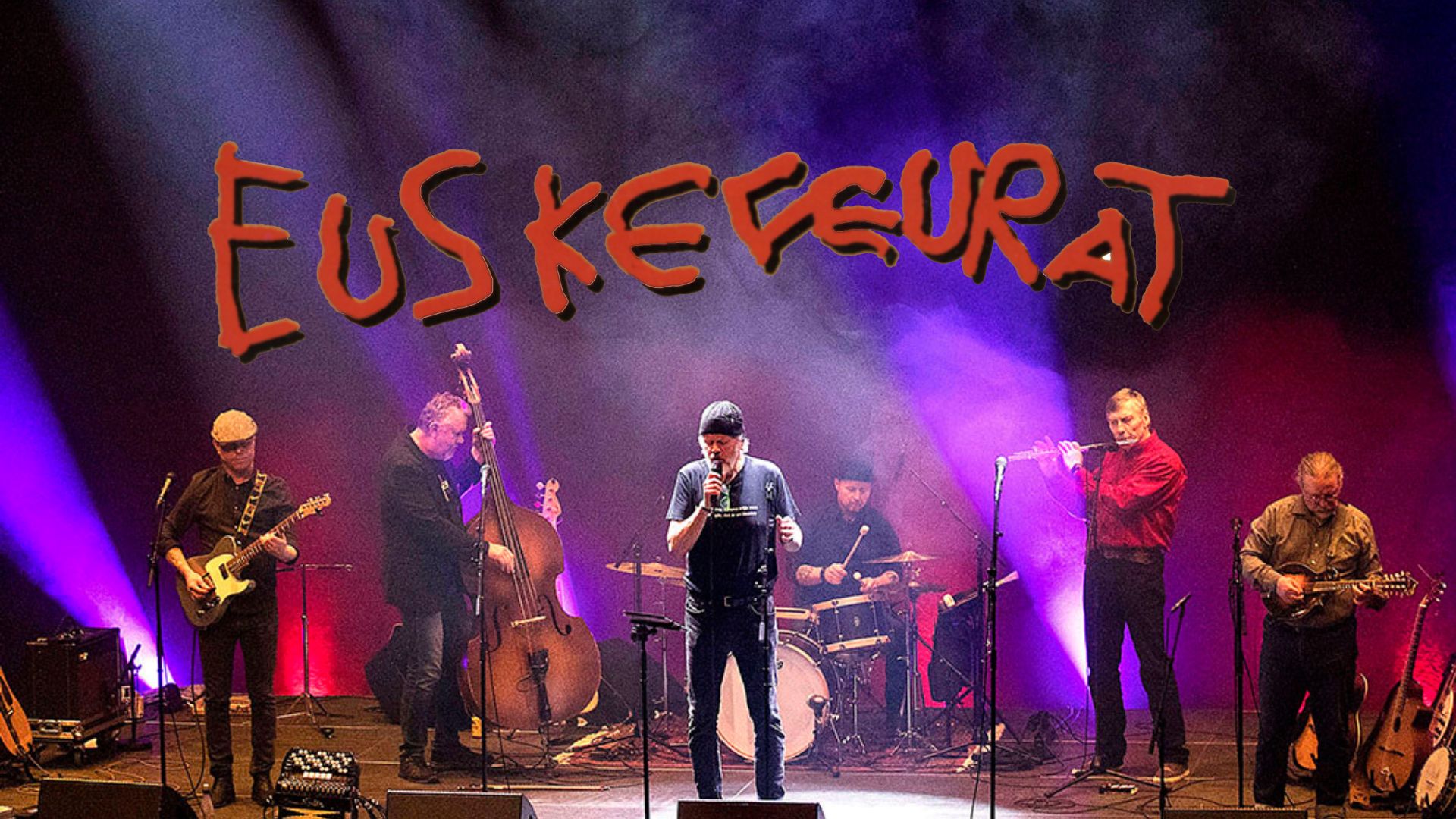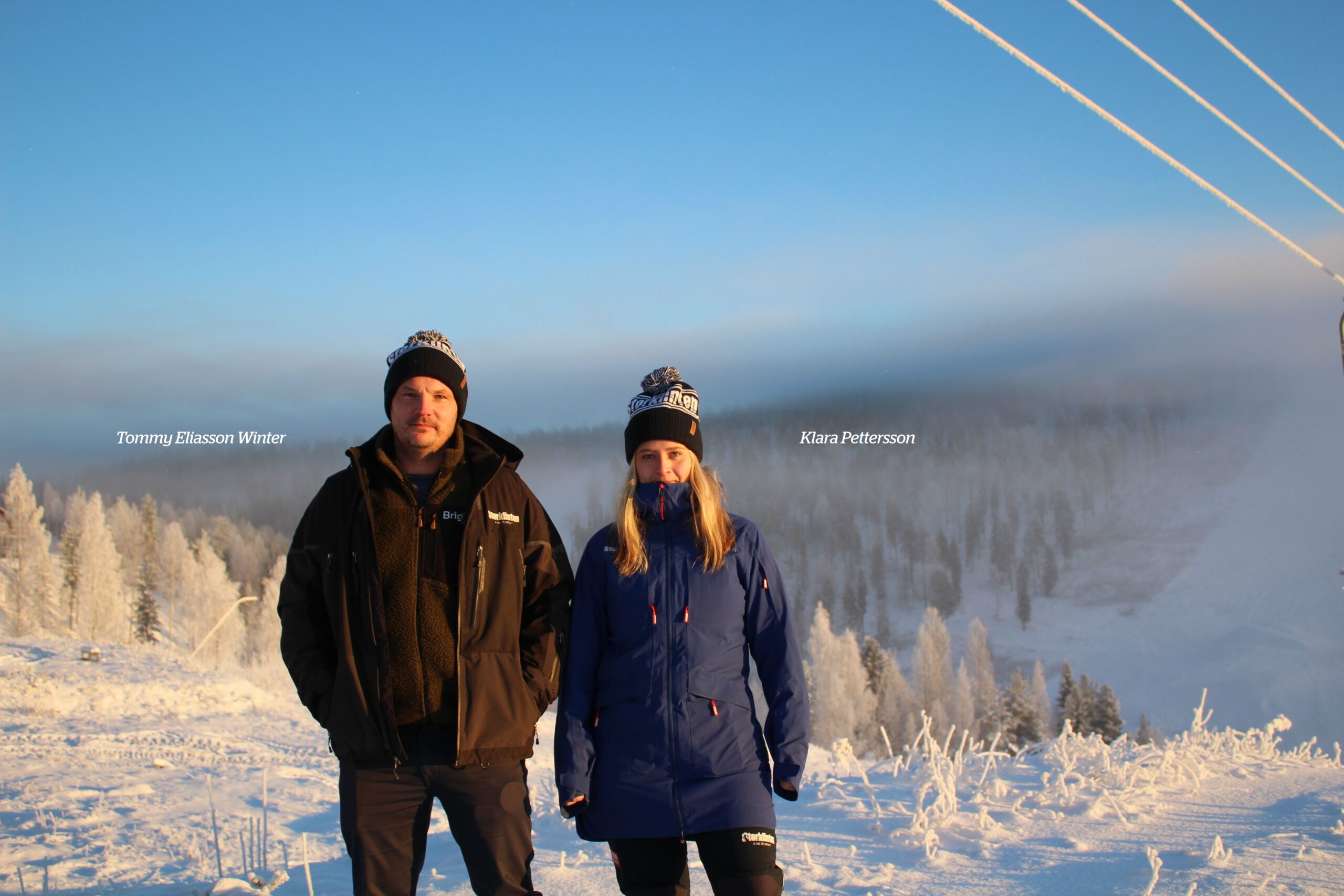For those who want to try their luck at fishing, whether you are a happy amateur or looking for more advanced fishing, Boden and its surroundings offer wonderful experiences for the whole family. The professional fishing guides Robert Westin, Arctic Adventure, and Michelle Staaf, MBS Guiding, give you the best tips and fishing spots.
Imagine the feeling of a sun that never sets. That you can stand on the shore of a mirrored lake, or foaming rapids, all summer night long, trying to outwit the fish in the landscape below the water's surface while the campfire crackles cozily nearby. Or, in the middle of winter, park yourself on a warm reindeer skin on the ice next to a pimple hole and, with the sun on your face and a mug of hot chocolate in your hand, enjoy peace and excitement at the same time. To succeed in pulling up the crocodile of northern Sweden, the pike, a struggling beast of 10-15 kilograms during thrilling summer fishing. Or to see the happiness on a small child's face at catching their first fish through a hole in the ice in winter or with a fishing rod on a quiet summer evening.
The Lule River offers some of the country's best trout fishing just minutes from the center of Boden.
The destination of Boden offers all these opportunities for all ages and skill levels, in lakes, forest lakes, calm seas and lively rapids, in summer, fall, winter and spring. There are also two river valleys just a few miles apart but with completely different characters. The Lule River is one of Sweden's richest rivers and has been developed with a number of hydropower plants, three of which are located in the municipality of Boden. Between the Laxede, Vittjärv and Boden power stations, the river flows quietly, lined with sandy beaches, woodland and pretty little villages. The Lule River offers some of the country's best trout fishing just a few minutes from the center of Boden.
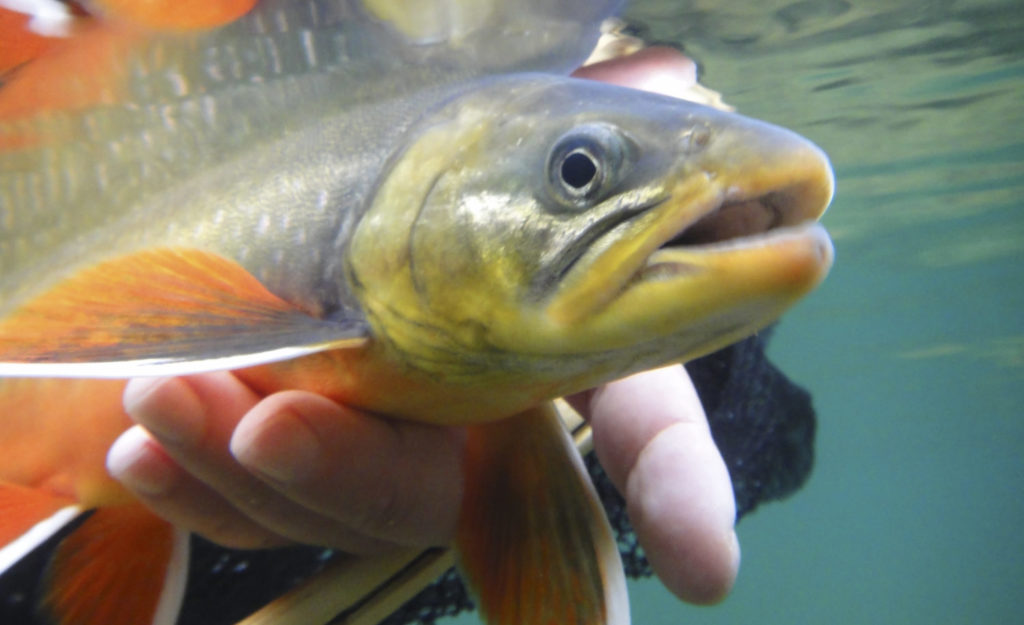
Råne älv is Sweden's largest forest river with varied environments. There are both rapids and sel, streams and tributaries, and adjacent lakes that offer fantastic fishing, and many beautiful places to enjoy.
Robert Westin, Arctic Adventure, is an experienced fishing guide with an average of 250 fishing days per year. What he doesn't know about fishing is not worth knowing. He offers fishing experiences all year round and throughout Swedish Lapland. But if there is something he is particularly passionate about, it is perhaps the spring and summer salmon trout fishing in the Lule River.
- The Lule River is regulated and planted, which means that fishing is allowed all year round. This is completely unique because there are very few rivers where this is allowed," he says.
Robert Westin also works extensively during the winter and often combines experience packages with everything from dog sledding, snowmobiling, skiing and other activities where fishing can be part of the experience, or pure fishing trips for those who want it.
- Most of my packages also include accommodation in cooperation with hotels and cottage owners in the area," he says.
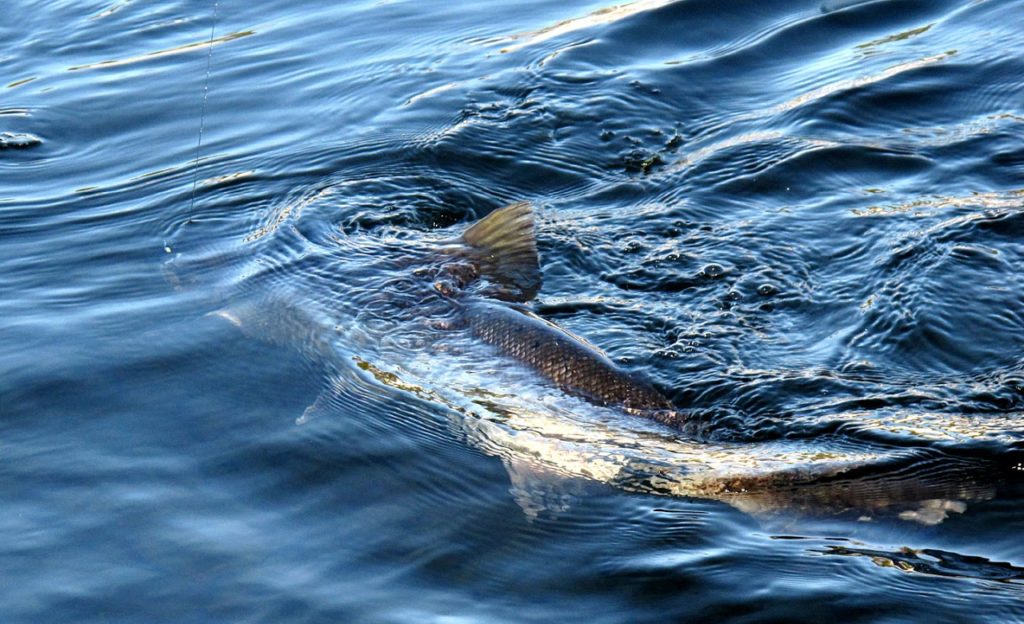
If you want to fish for the big fighting summer pike, he is happy to refer you to the number one pike fishing queen, Michelle Staaf. She runs the fishing company MBS Guiding with a passion for nature experiences and rural life.
This former ice hockey player has worked in tourism in Canada, Greenland, Iceland and South Africa before heading north again, accompanied by her fisherman from Skåne.
- Fishing has always been a central component of my life, from top-knotted fishing, pike fishing with bright orange rapala wobblers to whipping bamboo fly rods as a four-year-old. Nowadays, I've turned to bottom fishing, fly fishing and spinning, preferably in pursuit of the big pike," she says.
This former ice hockey player has worked in tourism in Canada, Greenland, Iceland and South Africa before heading north again with her fisherman husband from Skåne in tow. They bring with them a wealth of experience and ideas about what professional hospitality should look like, combined with a genuine interest in fishing. On their newly purchased farm in the Råne river valley, they offer holistic experiences with both accommodation and fishing. They offer local ingredients such as fish, reindeer and moose, prepare the food on muurikka, cook the coffee over the fire and take the drinking water from our clean watercourses.
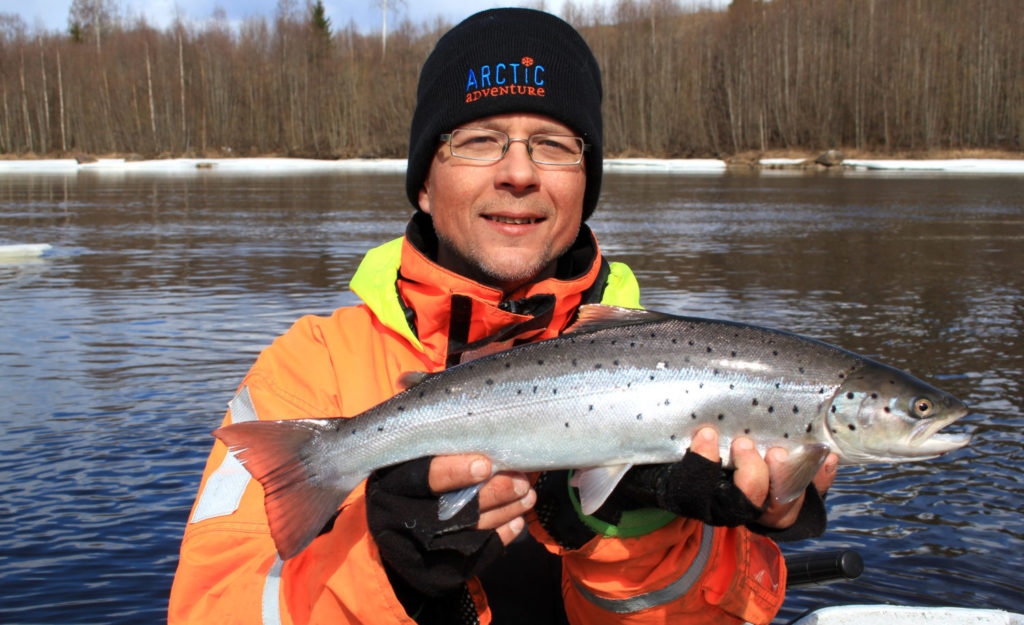
The fishing guides in Boden describe fishing as an adrenaline-filled relaxation and a challenge to lure the fish to bite. Understanding nature, biology and ecology is the basis for being a successful fisherman, although sometimes you can get lucky too. Ethics and morality are also important issues.
- We don't fish pike with barbs, for example, we use catch and release, and it is also important to hold the fish in the right way so that it is not damaged before it is released. I usually say that there should be as little handling of the fish as possible," explains Robert Westin.
With professional fishing guides in your company, you can count on the fishing going right, that you get to fish with good and right gear, and above all, find the top-notch fishing in Norrbotten. What are you waiting for? Come on!
Text: Anna Bergström
Photo: Fredrik Broman, Jacob Nilsson, Robert Westin and Michelle Staaf
